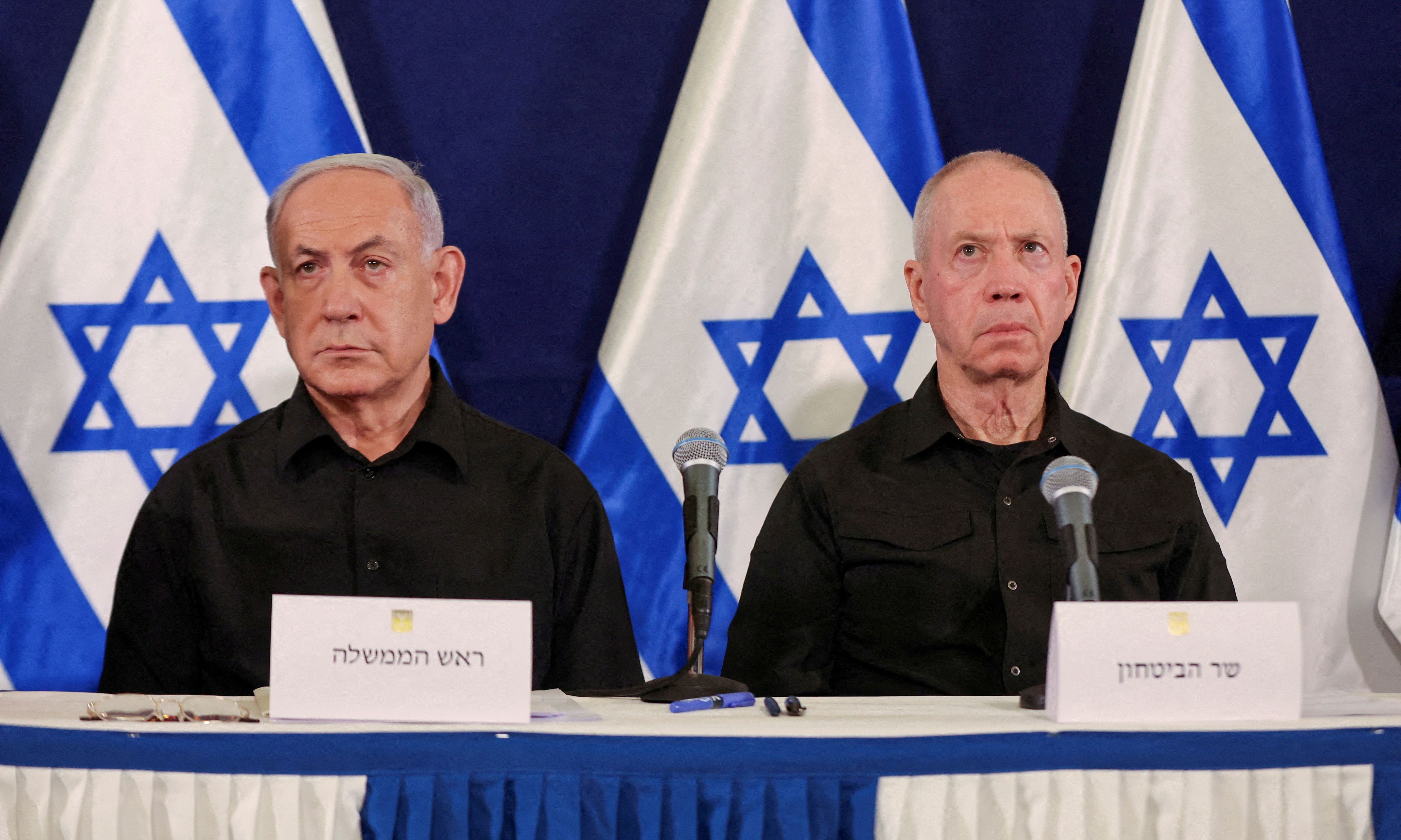On Thursday the International Court of Justice (ICC) issued warrants for the arrest of Israeli Prime Minister Benjamin Netanyahu and former Israeli Defense Minister Yoav Gallant, as well as a member of Hamas leadership.
The warrants for Netanyahu and Gallant were for charges of crimes against humanity and war crimes. The court unanimously agreed that the prime minister and former defense minister “each bear criminal responsibility for the following crimes as co-perpetrators for committing the acts jointly with others: the war crime of starvation as a method of warfare; and the crimes against humanity of murder, persecution, and other inhumane acts.”
“The Chamber considered that there are reasonable grounds to believe that both individuals intentionally and knowingly deprived the civilian population in Gaza of objects indispensable to their survival, including food, water, and medicine and medical supplies, as well as fuel and electricity, from at least 8 October 2023 to 20 May 2024,” the court detailed in its allegations.
The ICC also charged Hamas leader Ibrahim Al-Masri for mass killings during the Oct. 7, 2023, attacks on Israel, including rape and hostage taking.
A plan suggested by former IDF general, Giora Eiland, called for the explicit emptying out of northern Gaza and the labeling of all remaining civilians as military targets, as well as the purposeful blockage of humanitarian aid. Netanyahu reportedly did not agree to the plan, but evidence points to aspects of the plan being enacted.
“The ICC decision shows once more how out of sync Biden's Gaza policy is with both American and international law,” says the Quincy Institute’s Executive Vice President Trita Parsi. “Biden has sacrificed America's international standing to arm and protect leaders who the international courts have deemed to be war criminals.”
The ICC’s move comes just one day after unprecedented votes in the U.S. Senate to end the sale of certain offensive weapons to Israel. The measures ultimately failed, with the White House telling senators that they would be supporting Iran and Hamas should they vote to curb weapons sales to Israel.
Because of the ICC warrants, Netanyahu or Gallant could be arrested upon entering a nation that has recognized the ICC and its rulings. However, Israel is among dozens of other countries, including the United States, that do not recognize the court’s jurisdiction.
After warrants were requested in October, Israel reacted by challenging the jurisdiction of the ICC in the matter, but that challenge has been rejected. “Israel's reaction — that no other democracy has been treated this way by the ICC — is indicative of how perverted certain approaches to international law have become,” said Parsi. “Israel essentially argues that because it defines itself as a democracy, it should be above the law. That war-crimes, apartheid, and genocide are ok as long as the perpetrator identifies as democratic. This approach — creating different sets of laws and standards for different countries — is a recipe for global instability and a threat to American security.”
















